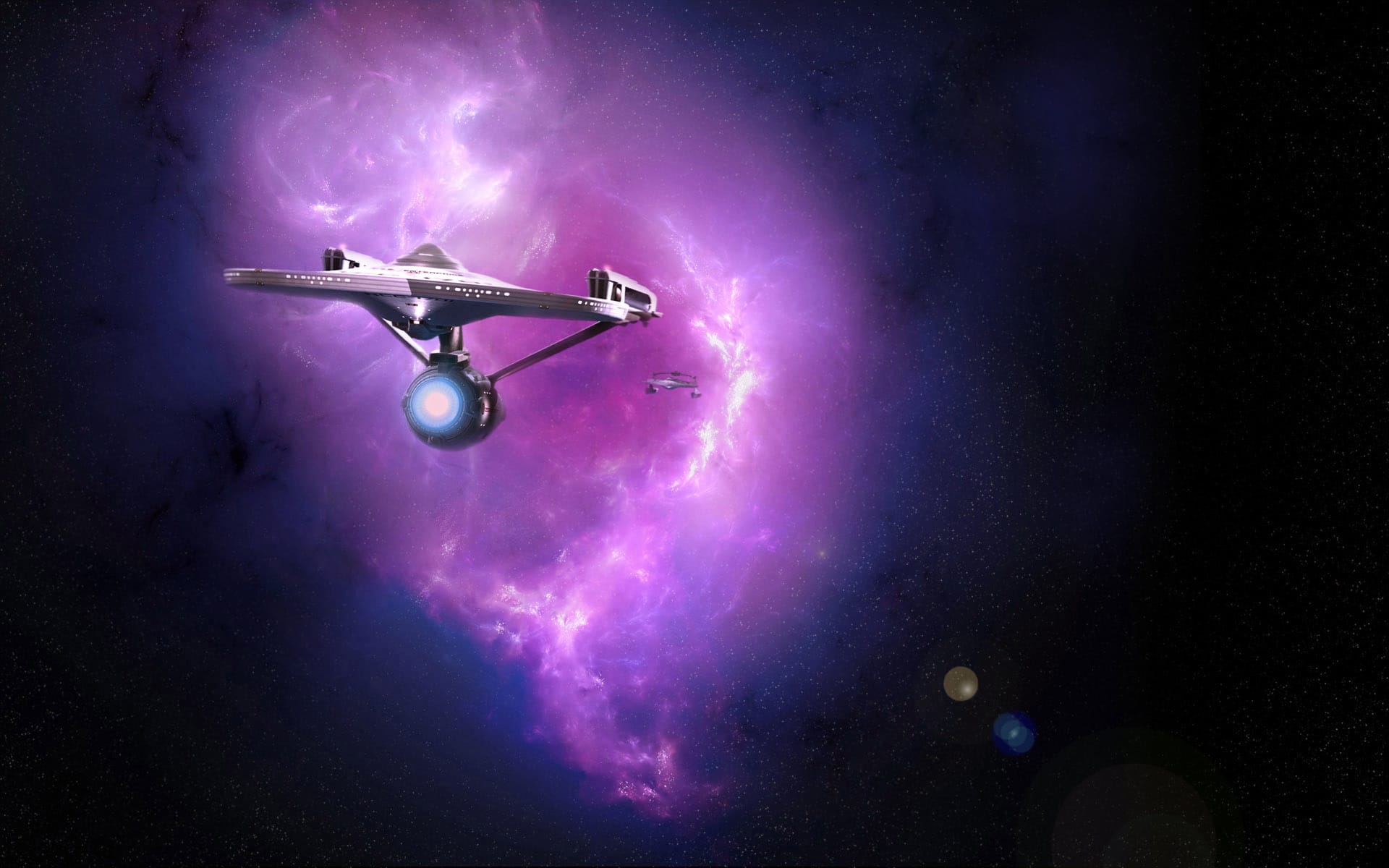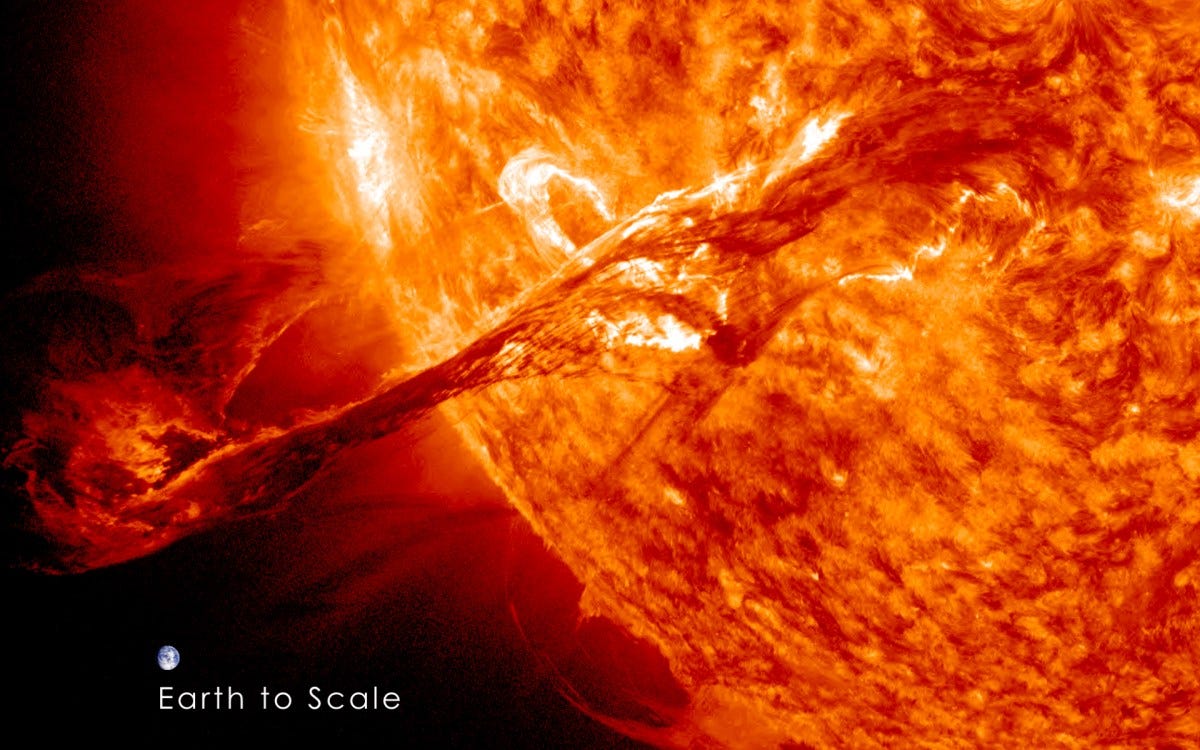How science fiction helps us contemplate reality
Reality is too big for our puny minds to capture all at once. This is where science fiction comes in.

Humans have a hard time contemplating large numbers and objects. And when it comes to really big things like our Sun, our galaxy or worse, our universe, we simply lose a sense of scale. Sure, we can put a number to these beastly objects, but we can’t contemplate the actual magnitude of their existence.
For example, we know that the Earth’s diameter is about 12,500 km. But that doesn’t mean that we can contemplate such a giant ball of rock and water with all its topology and life forms in one go. That feeling is strictly reserved for the physical and mental senses of an astronaut. Another example is the temperature at the core of our Sun, which we know from science to be a scorching 15 million degrees Celsius. But we can merely imagine the threatening thousands of degrees of lava heat, let alone millions of degrees powering the stars.

Even a solar filament eruption is several times larger than the entirety of Earth. Everyday life leaves us incapable of contemplating the sheer scale of it. And we haven’t even ventured outside the solar system yet!
Enter science fiction
Science is full of numbers, associated with facts, every text you look at. That somehow has been perceived as being dull by a general audience who are unable to relate those facts to their existence here on Earth. I maintain it’s their teacher’s fault. So much so that the situation even applies to many science students just the same. This is where science fiction chips in. By weaving the facts of nature in a story format, science fiction enables you to contemplate both the grandeur and the most importantly, subtlety of reality.
Science fiction as a tool to contemplate reality
Consider the following scene from the movie Interstellar. The astronauts who landed on one of the planets around the black hole only spent 10 minutes on its surface. When they returned to their spaceship, they were surprised to find that their friend had aged 23 years! That’s Einstein’s general relativity personified for you.
Physicists on Earth have sought to grasp and explain the masses the many spatial dimensions predicted by String Theory but it’s through the fictive Three Body Problem that author Liu Cixin uses the technology of an advanced alien species to clearly visualize what having access to these many dimensions would mean.
Another example is The Martian. Remember the orbital complexities involved in bringing the stranded astronaut back home? The story enables you to understand how going to Mars and coming back isn’t that easy. There are multiple factors out there in space that we can’t control, making planning things difficult.
If the facts of nature are expressed in a story format, that we all apes have a thing for, we get an understanding of why scientific facts are important and how they affect us all.
Science fiction as a part of media culture and an inspiration
History is filled with insightful science fiction writers such as H.G.Wells, Isaac Asimov, Arthur C. Clarke and many more. In the last century alone, science fiction has gone from the fascination of the nerds to being a common part of our media culture. How many time travel movies can you list, eh?
The essence of the classic sci-fi 2001: A Space Odyssey is still relevant after half a century of its publication. The book showcases a mix of artificial intelligence, colonies on the Moon, a crewed mission to Saturn, aliens, wormholes, all weaved intricately in a single story. The year 2001 has come and gone though, and sadly, none of the major technological advances imagined by Arthur C. Clarke have been accomplished. Yet, it still stands as an inspiration for our generation to make such an optimistic future happen.
Ion propulsion engines as seen in Star Trek are now a reality and one such engine was utilized by NASA’s Dawn spacecraft on its mission to explore the asteroid belt. The Laws of Robotics are well-known to have been derived from the science fiction author Isaac Asimov, who conceptualized the field of robotics. We are still looking forward to the day, good or otherwise, for a sentient artificial being to come into existence.
Science fiction as a medium to reflect on our social structure
Science fiction is also a tool to reflect on the ins and outs of our social structure. From Ray Bradbury’s The Martian Chronicles to Frank Herbert’s insightful Dune Series, people have tried to expose the dark sides of our social economies. Even the hilarious mathematical fiction Flatland satirically questioned our way of unjustly treating women.
Scientists like Fred Hoyle resorted to means of science fiction. He wrote The Black Cloud to popularize his scientific hypothesis among other scientists, some of which then found its way into mainstream science.
This constant give and take of science fiction with science and our culture is what has enabled our species to judge many of our deeds, question our traditions and improve our understanding of our place in this Universe.
Science fiction enables us to march on our way as a space faring species, which we hope will carry less of our weaknesses and more of our strengths.
Read science fiction. It will open your eyes to not only worlds that can be, but the world that is. What are some of your favorite science fiction stories?